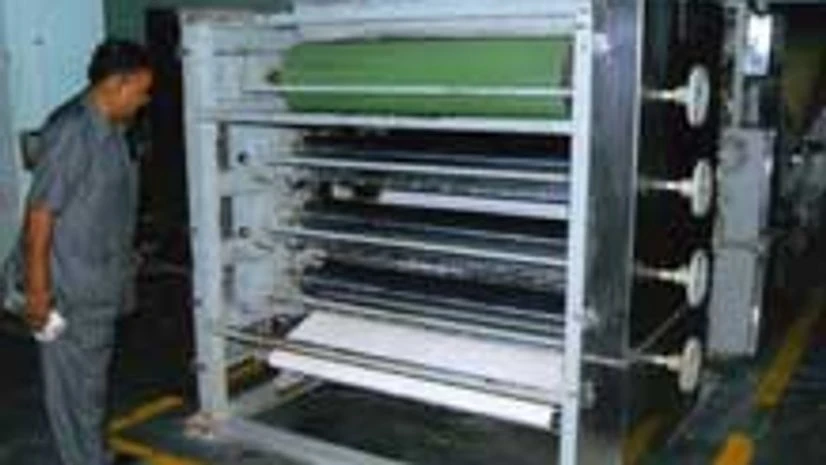Vidya Sagar was a young man of 26 when he set up Rieta Biscuits Private Limited at Patiala in 1966. By 1979, however, he realised that the marketing of food products required substantial resources, and he lacked funds for brand-building. He sold the company to Bakeman's that year and directed all his energies into manufacturing biscuit-making plants.
He set up Om Engineering Works for this purpose in 1979 and began making plants having a capacity of four to eight tonnes per eight-hour shift. He would make one plant in three months - a decent achievement for a small entrepreneur in the pre-liberalisation era.
Today, at 73, he is the world's largest manufacturer of chapati-making plants (with a capacity of 40,000 chapatis per hour) at the culmination of his career. Om Engineering Works also supplies chapatis to overseas markets. Stratus Foods Pvt Ltd, Vadodara, confirmed that it recently purchased two chapati-making plants (each with a capacity 40,000 chapatis per hour) from Om Engineering to export chapatis.
More From This Section
Sagar had started out in 1979 with a machine that could make just 2,000 chapatis per hour, and says it is a combination of his passion for continuous improvement and demand from buyers that drives him to innovate. "It takes close to three months to design one machine and I make four to five machines in a year," he adds.
It is his frequent participation in international seminars on food processing across the world that led him to start his current business, says Sagar: "I realised during a seminar in Delhi on wheat productivity that 85 per cent of wheat in India is consumed in making chapatis and the rest is used by the industry in making bread, biscuits and cake. So I decided to make a chapati-making machine."
He got his first major break in 1985, from Pune-based Stapen Food Limited, for which he put up a plant that made 2,000 chapatis per hour. This was followed by an order from Hindustan Unilever Limited in 1987 (then known as Hindustan Lever Limited), which installed the machine in Mumbai for staff meals.
Sagar stopped making biscuit plants in 1989, because by then he was getting sufficient orders for chapati-making plants. Demand from companies in Pune and Mumbai (for staff meals) and from religious institutions across India (Iskcon temples in Gurgaon, Faridabad, Jaipur and Brindavan, and the Golden Temple in Amritsar) ensured steady business growth.
But what proved a game-changer for him was the roll-out of the mid-day meal scheme in schools by the Union government in 1995. "There was a deluge of orders from NGOs that prepared mid-day meals. It was the turning point in my business," says Sagar.
He has supplied chapati-making machines to the Naandi Foundation and the Akshaya Patra Foundation, two non-profit organisations that provide mid-day meals in government schools across several states in the country, including Rajasthan, Gujarat, Uttar Pradesh and Delhi.
Unlike most entrepreneurs, Sagar oversees all aspects of his business. "I do multi-tasking, from engineering and design to purchase, administration, marketing, finance and accounts and after sales service. The availability of skilled manpower is a concern, so I learnt all about the machines, to take care of after sales service," he says.
Om Engineering has installed over 40 chapati-making machines so far. And even though he is over 70, he has no plans to hang up his boots. "My hands are full. I have an order for making a 50,000-chapatis-per-hour machine and it may take me three months to design it," he says matter-of-factly.

)
